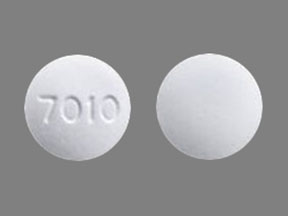
Chloroquine Phosphate Coupons & Savings Card – Discount Prices from $31.21
My prescription
Edit
500MG, Chloroquine Phosphate (4 Tablets)
Select pharmacy

CVS
$31.96
COUPON PRICE
Albertsons
$31.21
COUPON PRICE
Walgreens
$31.88
COUPON PRICE
Walmart
$58.47
COUPON PRICEChloroquine Phosphate savings card
Show this card to your pharmacist
Albertsons
$31.21
BIN
ID
PCN
GRP
011867
LHED88FBE5
HT
LABH001
Powered by
More prescriptions for malaria
More prescriptions for malaria
Chloroquine Phosphate dosage forms
Dosage Quantity Price from Per unit 250MG 4 Tablets $18.40 $4.60 250MG 14 Tablets $35.04 $2.50 250MG 30 Tablets $54.17 $1.81 250MG 50 Tablets $78.08 $1.56 500MG 4 Tablets $31.88 $7.97 500MG 25 Tablets $111.70 $4.47
| Dosage | Quantity | Price from | Per unit |
|---|---|---|---|
| 250MG | 4 Tablets | $18.40 | $4.60 |
| 250MG | 14 Tablets | $35.04 | $2.50 |
| 250MG | 30 Tablets | $54.17 | $1.81 |
| 250MG | 50 Tablets | $78.08 | $1.56 |
| 500MG | 4 Tablets | $31.88 | $7.97 |
| 500MG | 25 Tablets | $111.70 | $4.47 |
Chloroquine Phosphate Warnings
The safety and warnings for chloroquine provide crucial information about potential risks and necessary precautions. Please review the following points and consult your healthcare provider if you have any questions or concerns.
Heart Problems: Chloroquine use can lead to serious heart issues, including heart rhythm disturbances. The risk increases with high doses or when combined with other heart-affecting medications. Inform your healthcare provider if you have any heart conditions, as they may consider alternative treatments. Seek immediate medical attention if you experience dizziness, lightheadedness, or blurry vision.
Low Blood Sugar: This medication can cause dangerously low blood sugar levels, even without concurrent use of other blood sugar-lowering drugs. Be cautious if you are on such medications.
Muscle Weakness and Nerve Issues: Prolonged use of chloroquine may result in muscle weakness. Your healthcare provider may monitor your muscle strength and reflexes. Contact them if you notice any muscle weakness, as discontinuation might be necessary.
Worsening of Psoriasis and Porphyria: Chloroquine could exacerbate conditions like psoriasis or porphyria. Inform your provider if you have these conditions before starting treatment.
Hearing Damage: There is a risk of hearing damage, especially if you have pre-existing hearing issues. Discontinue use and consult your healthcare provider if you experience ringing in the ears or hearing changes.
Low Blood Counts: Chloroquine can affect blood counts, posing a higher risk for individuals with glucose-6-phosphate dehydrogenase (G6PD) deficiency. Long-term users may require regular blood tests to monitor blood count levels.
Liver or Kidney Damage: Since chloroquine is processed by the liver, it may harm the liver, particularly in individuals with existing liver issues. Alcohol consumption can increase this risk. Discuss any liver or kidney concerns with your provider.
Seizures: Those with a history of seizures may have an increased risk when taking chloroquine. Inform your provider about any past seizures, as they might recommend a different medication.
Serious Eye Damage: Although rare, chloroquine can cause eye damage or vision changes, especially with long-term use (5 years or more) or if you have existing vision problems. An eye exam may be required before starting treatment. Report any vision changes to your healthcare provider promptly.
Additionally, chloroquine should not be used by individuals with current eye changes or problems, as it may pose serious health risks. Always consult your healthcare provider before starting this medication if you have any of these conditions.
Chloroquine Phosphate Side Effects
Common side effects:
- nausea
- vomiting
- diarrhea
- stomach cramps
- headache
- rash
- itching
Less common but important to monitor:
- tiredness
- confusion
- anxiety
- hallucinations
- muscle weakness
Serious side effects:
- seizures
- significant changes in vision
- irregular heartbeat
- dangerously low blood sugar levels
- serious skin reactions
- symptoms of heart failure
- signs of liver or kidney problems
- very serious allergic reaction
Chloroquine Phosphate Interactions
Interactions with high risk of serious adverse effects and should be avoided:
- Aurothioglucose
- Bepridil
- Cisapride
- Dronedarone
- Levomethadyl
- Mesoridazine
- Pimozide
- Piperaquine
- Saquinavir
- Sparfloxacin
- Terfenadine
- Thioridazine
- Ziprasidone
Interactions with moderate risk that may require dose adjustment, closer monitoring, or timing changes:
- Amiodarone
- Azithromycin
- Disopyramide
- Quinidine
- Mefloquine
- Penicillamine
- Remdesivir
- Rabies vaccine
- Cholera vaccine
